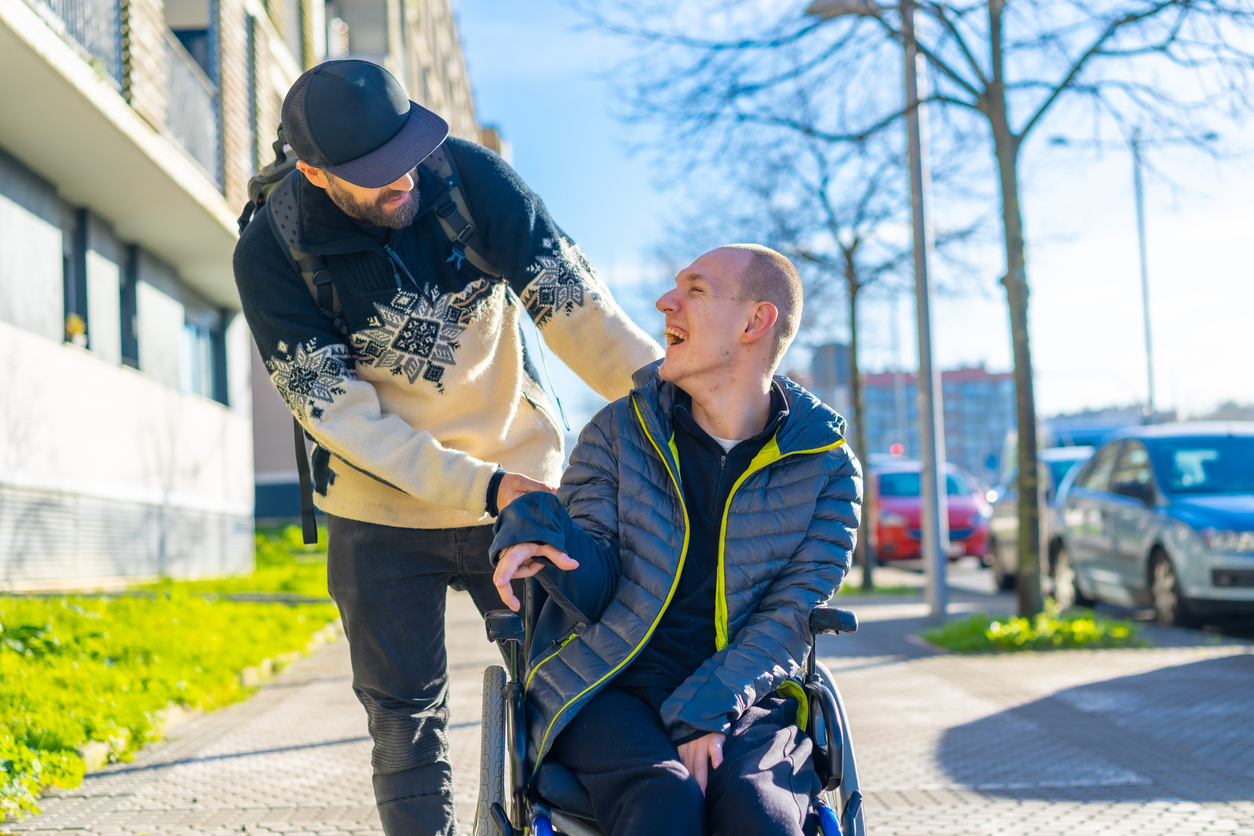ADAPTIVE SPORTS: CELEBRATING FREEDOM AND WELLNESS

July 4th is when we celebrate our nation’s freedom. It occurs at the height of summer, when people are enjoying all types of sports and recreational activities outdoors.
Fifty years ago, the best-case scenario for a person with a physical disability was to live a quiet life with limited mobility. This is far from the case today. Individuals with disabilities have the freedom to participate in a myriad of sports and other healthy physical activities through adaptive sports.
“Today, because of advanced technology and supportive infrastructure, people can find almost any kind of sport or activity that takes into account their abilities and helps them stay active."
- Dr. Cheri Blauwet, Associate Professor in Physical Medicine and Rehabilitation at Harvard Medical School and a former wheelchair racer, seven-time Paralympic medalist, and two-time winner of both the Boston and New York City Marathons.1
WHAT ARE ADAPTIVE SPORTS?
Adaptive sports are competitive or recreational sports and activities for people with disabilities or limited mobility. They are similar to mainstream sports, but are modified to support people's specific physical abilities 1.
Adaptive sports got its start after World War II 2 with wheelchair basketball, but today it encompasses a wide range of sports including rugby, skiing, scuba diving, rock climbing, hockey, bicycling, and golf, to name just a few.
As technology continues to develop, sports are available to people with disabilities of all kinds, and the wide range of available adaptive sports is allowing people with practically any interest to get involved and be active and engaged.
Adaptive sports can be found everywhere and encompass a variety of options: competitive, non-competitive, indoor, outdoor, teams, and individuals.
BENEFITS OF ADAPTIVE SPORTS
Adaptive sports provide many health and psychological benefits 3. Studies show that adaptive sports increase social participation, improve interpersonal relationships, and improve the performance of daily activities.
Adaptive Sports Improves Physical Health
For everyone, whether disabled or not, physical activity is an important factor in overall health and wellness and can improve or prevent chronic diseases like heart disease, obesity, and cancer. It strengthens muscles and bones, and improves coordination.
Adaptive Sports Improves Mental Health
Everyone is more inclined to exercise when it’s fun, and adaptive sports are both fun and good for the body. Beyond the physical health benefits, quality exercise is good for the mind as well; it is known to help conditions like depression and anxiety, increase confidence, and improve self-esteem.
Adaptive Sports Provide Connection and Community
Adaptive sports are a great way to make new friendships, connect with others who enjoy the same activities, develop a peer support system, and feel a sense of belonging and empowerment.
POPULAR WHEELCHAIR SPORTS
Today, people who use a wheelchair can participate in nearly any sport with the proper equipment modifications 4. Some of the most commonly known wheelchair sports include5 basketball, marathons, biking, swimming, and skiing. Some lesser-known adaptive sports include:
- Tennis
- Golf
- Paddling
- Archery
- Bowling
- Fishing
- Lacrosse
- Sailing
- Scuba Diving
- Softball
- Water skiing
- Horseback riding
- Fencing
ADAPTIVE SPORTS RESOURCES
There are many resources available online to find sports events, teams, and activities near you, including:
National Sports Center for the Disabled
Nationwide Adaptive Sports Listing
Check with your doctor or physical therapist before starting any exercise or adaptive sport.
JOIN THE THRIVE COMMUNITY BY ENEMEEZ®
The Thrive Community Facebook Group is a private space for any person with a disability, as well as caregivers and healthcare providers that touch their lives. Our purpose is to provide a safe, educational space for group members to ask every question, connect with their peers, and empower each other through communication and connection. Our conversations are led by incredible individuals who themselves are living and thriving. For more enlightening resources, information, and discussion, join the ENEMEEZ® Thrive Community today!
Disclaimer: The material contained is for reference purposes only. Quest Healthcare, A Division of Quest Products, LLC, does not assume responsibility for patient care. Consult a physician prior to use. Copyright 2023 Quest Healthcare, A Division of Quest Products, LLC.
SOURCES:
- Taking up adaptive sports - Harvard Health
- Adaptive Sports for Disabled Veterans - NCBI Bookshelf (nih.gov)
- How does playing adapted sports affect quality of life of people with mobility limitations? Results from a mixed-method sequential explanatory study - PMC (nih.gov)
- What Are Adaptive Sports? (accessibility.com)
- Health Tips | Adaptive Sports: Staying Active While Living With A Disability | Choose PT












